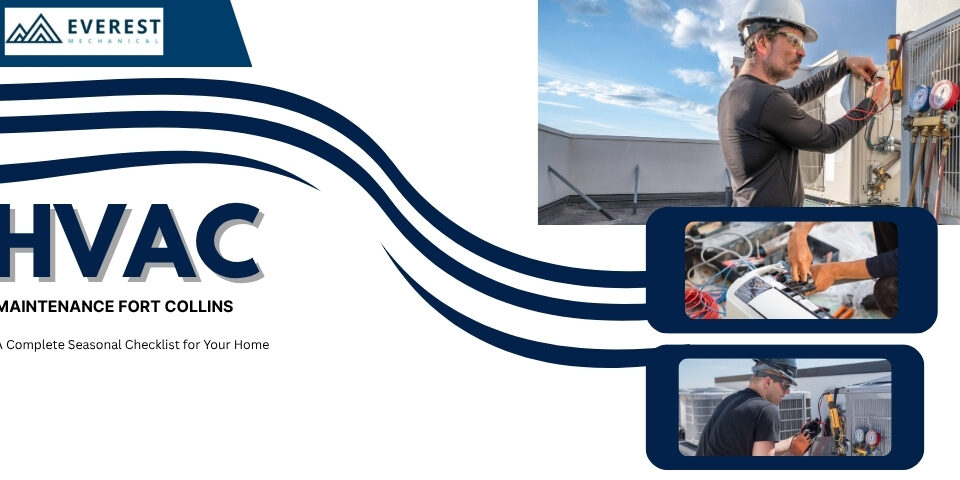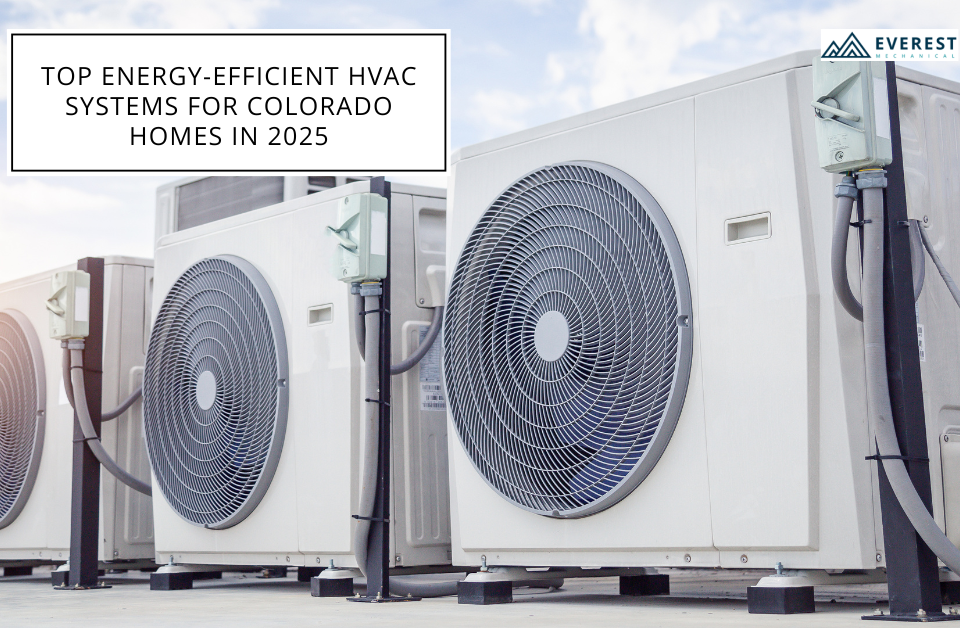- Servicing areas in and around: Estes Park, Longmont, Boulder, Arvada, Fort Collins, Denver, Loveland, and Lyons
- 8883880970
10 Effective Ways to Save on Your High HVAC Energy Bills
Important Questions to Ask Before Hiring Plumbing Services
June 9, 2023
Let your Air Conditioning System Improve Indoor Air Quality
July 20, 2023Heating, ventilation, and air conditioning (HVAC) systems play a crucial role in maintaining a comfortable indoor environment. However, they can also be a significant contributor to your monthly energy bills. As energy costs continue to rise, finding ways to save money on HVAC expenses has become increasingly important for homeowners.
Many homeowners are looking for ways to save money on their HVAC bills. If you’re looking to cut down on your HVAC expenses without sacrificing comfort, you’re in the right place.
In this article, we’ll explore ten effective strategies to help you save money on your HVAC bills while keeping your home cozy and energy-efficient.
Ten effective ways to reduce your HVAC energy bills
- Upgrade to Energy-Efficient Equipment:
Investing in energy-efficient HVAC equipment can provide long-term savings. Look for systems with a high Seasonal Energy Efficiency Ratio (SEER) for cooling and a high Annual Fuel Utilization Efficiency (AFUE) for heating. Energy Star-certified units are a reliable indicator of efficiency, providing better performance while using less energy.
- Regular Maintenance and Tune-ups:
Ensure your HVAC system operates optimally by scheduling regular maintenance and tune-ups. By regularly cleaning and replacing air filters may be in every 1-3 months, depending on usage you can increase the efficiency of your HVAC systems. Dirty filters reduce airflow and force your system to work harder, leading to increased energy consumption. Additionally, professional maintenance checks can identify and fix any issues before they become major problems.
- Utilize Programmable Thermostats:
Install a programmable thermostat to gain better control over your HVAC system. These devices allow you to set temperature schedules that align with your daily routine. For example, you can program the thermostat to reduce heating or cooling when you’re away or asleep. This practice can save significant energy by avoiding unnecessary heating or cooling when it’s not needed.
- Embrace Natural Ventilation:
During moderate weather conditions, take advantage of natural ventilation to reduce the load on your HVAC system. Open windows and use ceiling or portable fans to circulate fresh air and maintain a comfortable temperature indoors. This approach can significantly reduce the need for mechanical cooling or heating, resulting in lower energy bills.
- Weatherproof Your Home:
Sealing air leaks and improving insulation in your home helps maintain a consistent indoor temperature and reduces the strain on your HVAC system. Caulking and weatherstripping around windows and doors, insulating your attic, and sealing ductwork can prevent drafts, keeping your home energy-efficient. By eliminating air leaks, you’ll reduce the amount of conditioned air that escapes, resulting in lower energy consumption.
- Optimize Sunlight and Shade:
Harness the natural power of sunlight to your advantage. During cold months, open curtains or blinds on sunny days to let the warmth in, reducing the need for heating. Conversely, use blinds, curtains, or shades during hot months to block out direct sunlight and prevent unnecessary heat gain. This simple practice can reduce the workload on your HVAC system and save on energy costs.
- Efficient Use of Appliances and Lighting:
Your HVAC system may have to work harder if other appliances and lighting fixtures generate excess heat. Switch to energy-efficient appliances and replace incandescent bulbs with LED lights, as they produce less heat and consume less electricity. This not only saves on your overall energy bills but also reduces the heat load on your HVAC system, making it more efficient.
- Zone Heating and Cooling:
Consider implementing a zoning system in your home to optimize comfort and reduce energy consumption. Zoning allows you to heat or cool specific areas of your house independently, according to their usage and occupancy. By adjusting the temperature only in occupied zones, you can avoid heating or cooling unoccupied areas unnecessarily, resulting in substantial energy savings.
- Proper Ventilation in Bathrooms and Kitchens:
Exhaust fans in bathrooms and kitchens help remove excess moisture and heat generated by showers, cooking, and appliances. By using these fans promptly and efficiently, you can prevent unnecessary strain on your HVAC system. Excess humidity can force your system to work harder, leading to higher energy bills. Regularly clean the fans to ensure optimal performance.
- Educate and Involve the Family:
Saving money on HVAC bills requires a collective effort. Educate your family members about energy-saving practices, such as turning off lights when not in use, closing doors and windows properly, and setting appropriate thermostat temperatures. Encouraging everyone to contribute will foster an energy-conscious mindset and lead to more significant savings.
By implementing these ten strategies, you can effectively reduce your HVAC bills without compromising comfort. From investing in energy-efficient equipment to embracing natural ventilation and optimizing your home’s insulation, each step plays a vital role in conserving energy and lowering costs. Remember, doing small changes now and then can make a big difference in the long run. So, take control of your HVAC expenses and enjoy the benefits of a more energy-efficient home.




